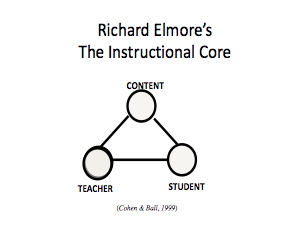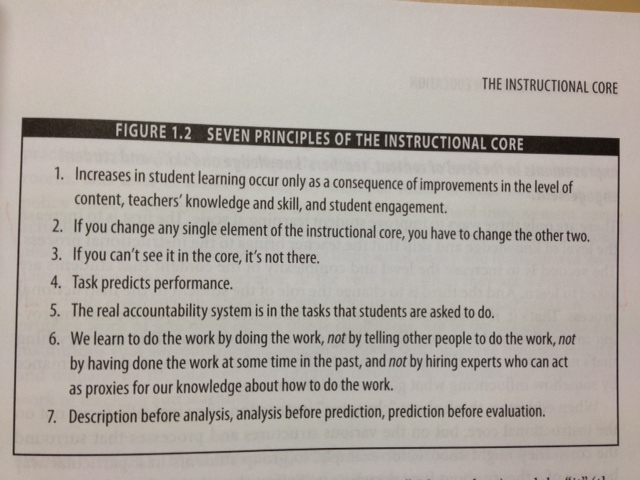What does 'Instructional Rounds' mean?
Response to the article and summary pdf:
(questions, comments, wonderings)
IR creates self reflection because not reporting back to a teacher about their lesson but coming back and talking as a group so reflecting on own practice in that context. Not judging someone's practice but looking for common grounds.
Discussion was more general and open.
Excited/apprehensive
Nervous about having lots of people in your room.
Might be better because it's a group in room not one one person.
Interesting for our context that we can have whole staff ownership of the process - the problem of practice, the theory of action and improvement strategy.
Once understand how it works it will be less stressful for the person teaching and the people observing than lesson study because not one-on-one feedback about a lesson.
Need to focus on observing not judging, might be difficult to begin with, need lots of practice.
(questions, comments, wonderings)
IR creates self reflection because not reporting back to a teacher about their lesson but coming back and talking as a group so reflecting on own practice in that context. Not judging someone's practice but looking for common grounds.
Discussion was more general and open.
Excited/apprehensive
Nervous about having lots of people in your room.
Might be better because it's a group in room not one one person.
Interesting for our context that we can have whole staff ownership of the process - the problem of practice, the theory of action and improvement strategy.
Once understand how it works it will be less stressful for the person teaching and the people observing than lesson study because not one-on-one feedback about a lesson.
Need to focus on observing not judging, might be difficult to begin with, need lots of practice.
The Instructional Core:
(click on the images below for the link to the source articles)
(click on the images below for the link to the source articles)
City A.E., Elmore R.F., Fiarman S.E., Teitel L., 2009, Instructional Rounds in Education, Harvard University Press, p23
Activity:
With a partner sort descriptive statements into the principle of the Instructional Core they describe.
What are the key points that come out of these principles?
Responses:
With a partner sort descriptive statements into the principle of the Instructional Core they describe.
What are the key points that come out of these principles?
Responses:
| 7_principles_matching_task.docx | |
| File Size: | 38 kb |
| File Type: | docx |


